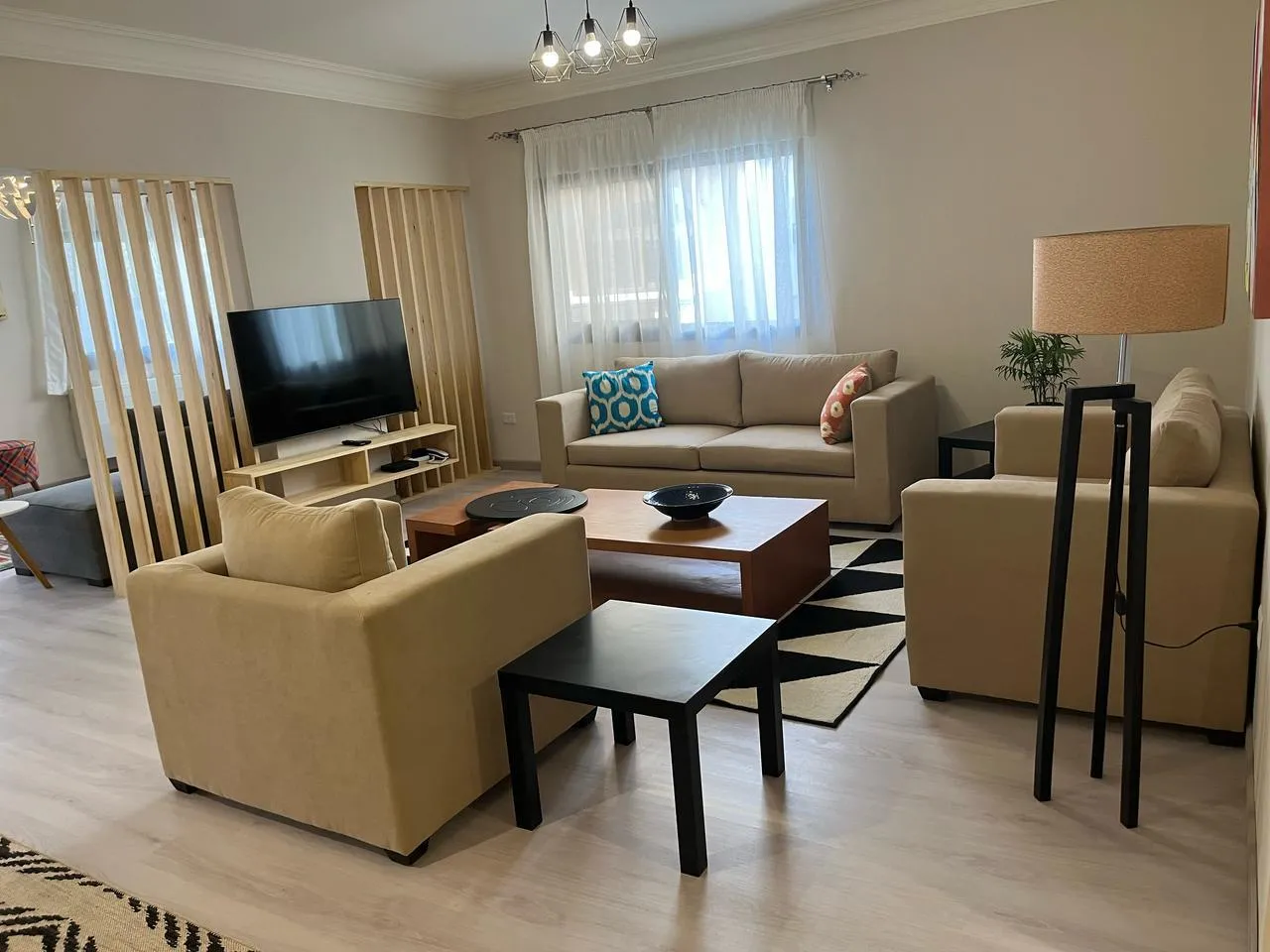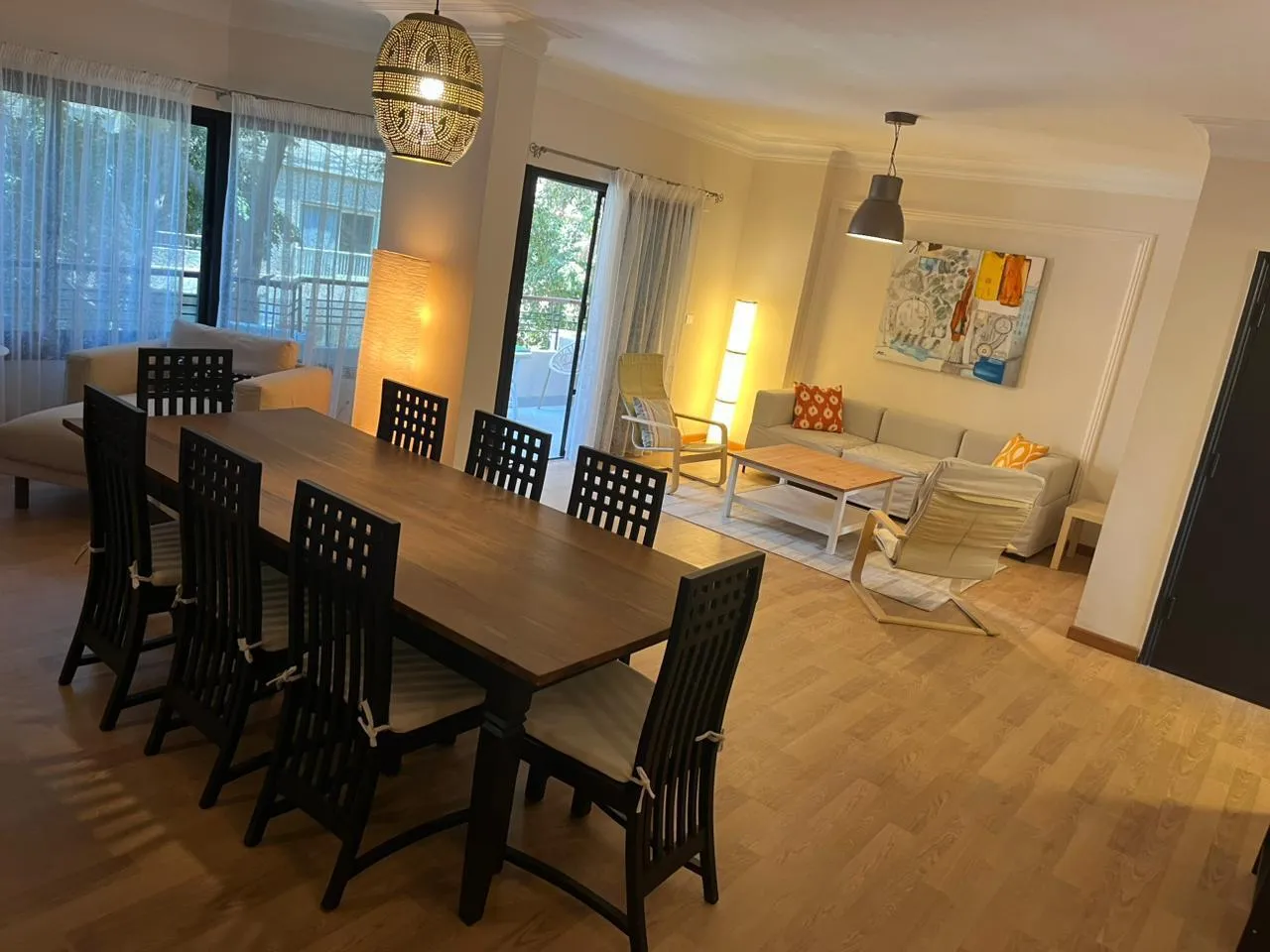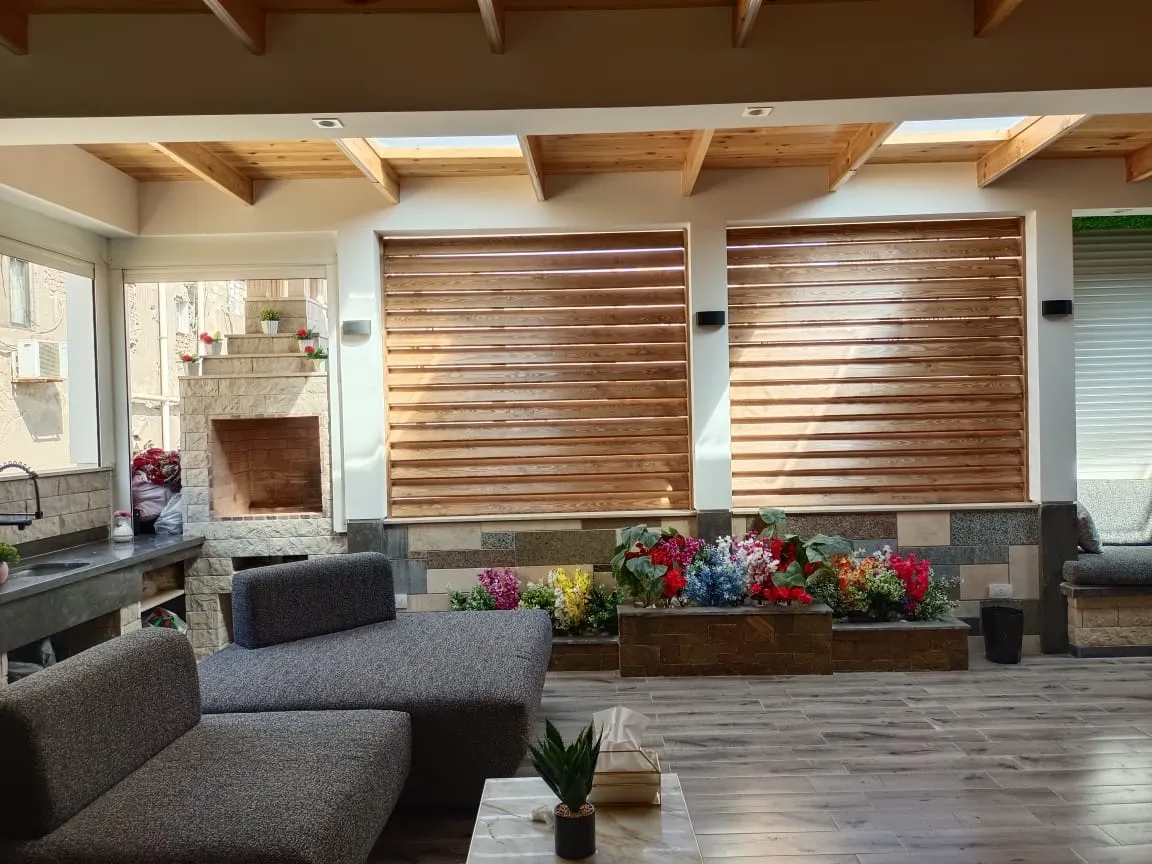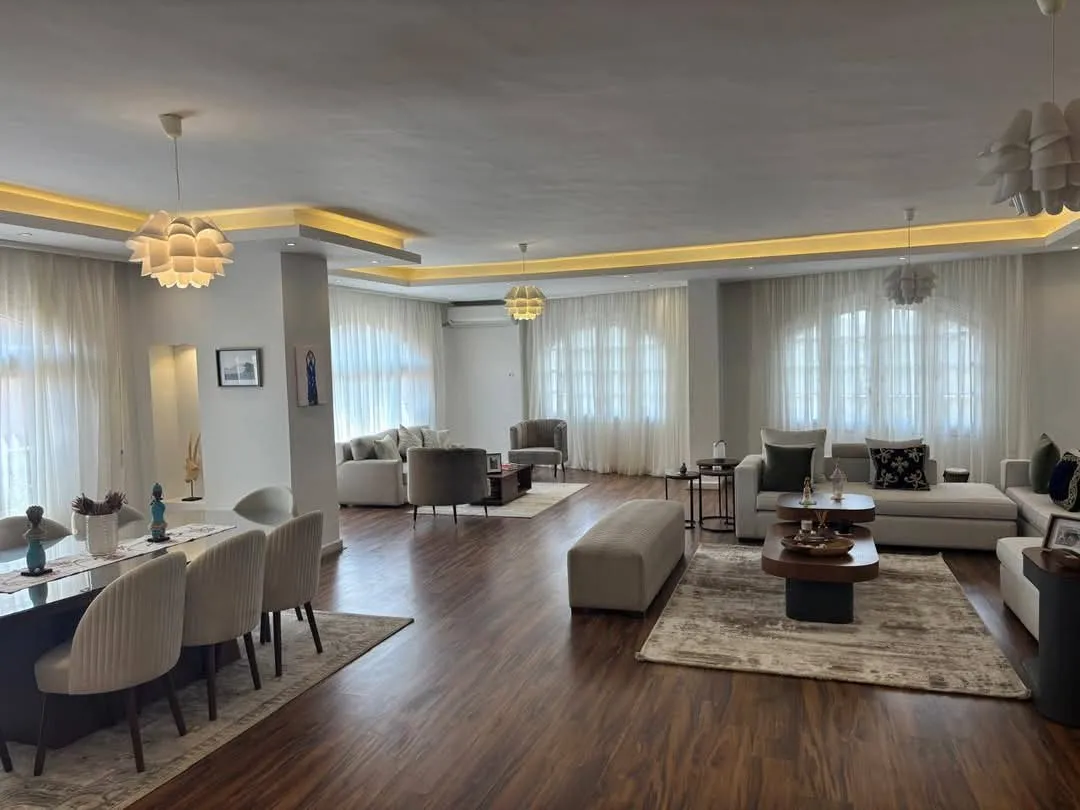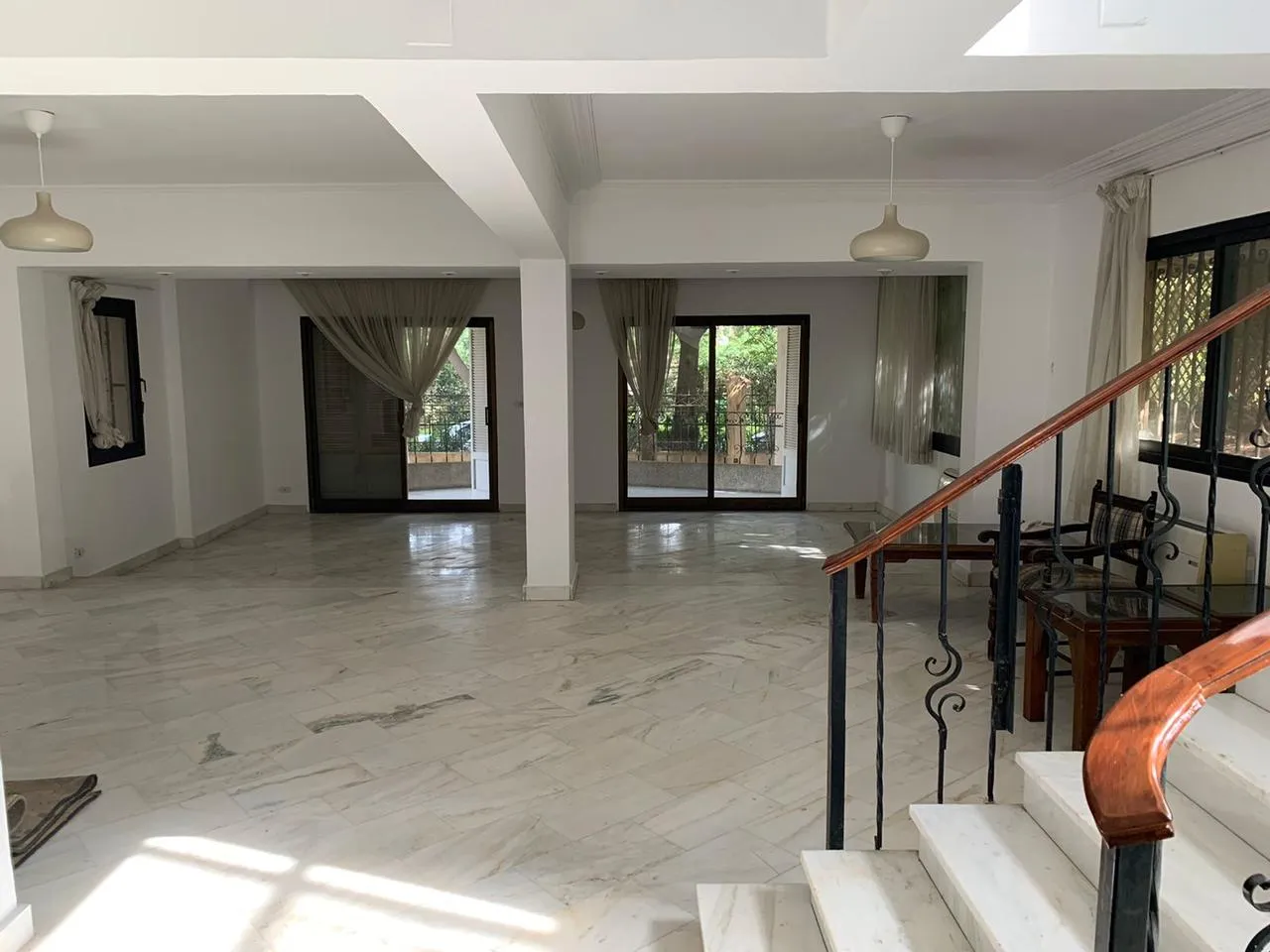The Magic of Maadi: An Informative Exploration
الكاتب
Ali Ashour
الوقت
13 دقيقة
اللغة
الانجليزية
كتبت بتاريخ:
3/18/2024
تم التحديث:
4/15/2024
Maadi, a picturesque neighbourhood in Cairo, Egypt, distinguishes itself through its lush greenery, tree-lined streets, and the tranquil flow of the Nile River alongside. Home to approximately 500,000 residents, it stands as a testament to Cairo's diverse and vibrant culture. Maadi's unique blend of quiet residential life and bustling streets filled with an array of restaurants, shops, and cafés, coupled with its rich tapestry of local and expatriate communities, encapsulates the essence of modern Egyptian living.
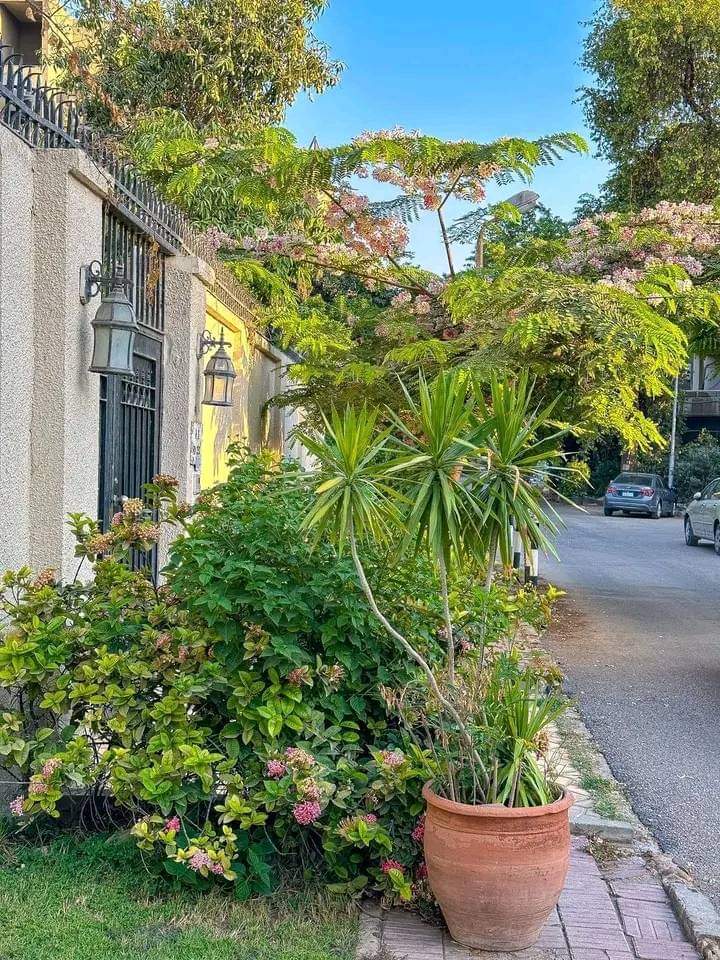
This exploration into Maadi will uncover the district’s rich history, its multicultural environment fostered by a significant expatriate population, and the plethora of leisure, educational, and daily life amenities it offers—from international schools to accessible transportation options. Further insights will reveal why Maadi is not just a place to reside but a locale where cultures converge, offering gastronomy, recreation, and education, making it a cherished gem on Cairo’s map.
The Rich History of Maadi
Maadi, a district nestled in the Southern Area of Cairo, Egypt, boasts a rich tapestry of history that reflects its evolution from an ancient caravan stop to a modern garden suburb. The name Maadi itself, derived from the Arabic term ma’adeya, signifies its historical importance as a pivotal stop along the caravan routes bridging the Arab region and Africa. This legacy of connectivity laid the foundation for what would become a green haven within the bustling metropolis of Cairo.
- 1904: The Egyptian Delta Light Railways Company purchases land, marking the inception of Maadi's development.
- Inspiration: Modeled after the English middle-class dormitory suburb, Maadi's early development featured eclectic villas in English vernacular styles, embodying the aspirations for an exclusive community.
- Economic Transformation: The Open Door policy under Sadat catalyzed significant changes, prompting the Maadi Company to build apartment buildings catering to the burgeoning class of managers and professionals.
Samir Raafat's seminal work, 'Maadi 1904-1962; Society & History in a Cairo Suburb', offers an in-depth look at this transformation, enriched with 70 pictures and a map of old Maadi, illustrating the district's journey from an exclusive enclave to a vibrant, green suburb known as the ‘garden suburb’. This evolution is further highlighted by the establishment of the Maadi Club and the hosting of the first Annual Open Tennis Tournament in 1926, showcasing Maadi’s burgeoning community spirit and its embrace of modernity.
A Blend of Cultures: The Expat Community in Maadi
Maadi's expatriate community thrives on its diversity and inclusivity, making it a melting pot of cultures and traditions. Residents from various backgrounds find a harmonious blend of lifestyle and comfort, contributing to the neighborhood's vibrant international atmosphere. This diversity is further enriched by the presence of numerous embassies, including those from Argentina, Cuba, Japan, and South Africa, among others, fostering a global community spirit.

Key Amenities for Expatriates:
- International Schools: Cairo American College and Maadi British International School are among the top choices for quality education.
- Medical Facilities: Comprehensive healthcare is accessible at facilities like Dr. Osman Hospital and Andalusia Maadi Hospital.
- Community Services: The Community Service Association (CSA) plays a pivotal role, offering "Survival Arabic" classes, Egyptian cuisine lessons, and social events like the Spring Fashion Buzz to help expats integrate smoothly.
The neighborhood's architecture mirrors its cultural blend, with luxurious areas like Old Maadi and expat-dense regions such as Degla Maadi and Sarayat El Maadi. The walkable streets and welcoming local population make Maadi not just a place to live but a community to belong to, where expatriates find solace, education, and leisure in a setting that feels like home.
Leisure and Recreation: Outdoor Activities in Maadi
Maadi stands as a beacon for those seeking a blend of leisure and recreation amidst Cairo's bustling life. This neighborhood offers a family-friendly environment, not just through its educational institutions but also via a myriad of outdoor activities that cater to all ages and interests.
Outdoor and Cultural Activities:
- Wadi Degla Protectorate and Al-Maadi Corniche offer scenic trails and routes perfect for hiking, biking, and leisurely walks.
- The Nile River invites water sports enthusiasts for kayaking, canoeing, and sailing, with the Maadi Yacht Club providing lessons and rentals.
- For those interested in culture, Maadi Arts Center and nearby Cairo Opera House in Zamalek host a variety of art classes and cultural events.
Family and Social Gatherings:

- Road 9 serves as the social hub with its array of restaurants, cafes, and bars like Café Greco and Ralph's German Bakery, fostering community gatherings.
- Maadi Park and Orman Botanical Garden offer serene landscapes for family picnics, paddle boating, and bird watching.
Despite Maadi's tranquil ambiance, it's essential to note that the diversity and volume of entertainment options might not match other Cairo districts. However, the quality and accessibility of these amenities ensure a rich, fulfilling lifestyle for residents and visitors alike, making Maadi a cherished neighborhood in Cairo.
Education in Maadi: A Focus on Quality
Maadi's educational landscape is enriched by its diverse international schools, catering to a global community with a commitment to excellence in learning. When selecting an international school in Maadi, parents and guardians consider several critical factors to ensure their children receive the best possible education:
- Curriculum: Choices range from International Baccalaureate (IB), British, French, to American, allowing families to align educational experiences with their home country's system or opt for a globally recognized curriculum.
- Teaching Staff: The qualifications and experience of teaching staff are pivotal, ensuring that educators are well-equipped to provide a supportive and enriching learning environment.
- Class Sizes: Smaller class sizes are preferred for their ability to offer more individualized attention, fostering a conducive learning atmosphere.
- Facilities and Resources: Schools boast state-of-the-art science labs, extensive libraries, comprehensive sports facilities, and advanced technology resources, supporting a well-rounded education.
- Extracurricular Activities: These play a significant role in promoting students' personal growth and development beyond the classroom, offering a range of options from sports to arts.
Notable institutions such as Cairo American College (CAC), Maadi British International School (MBIS), and Lycée Français du Caire offer rigorous academic programs, dedicated faculty, and a holistic approach to education, emphasizing the development of the whole child. Additionally, specialized institutions like The Learning Resource Centre (LRC) cater to children with special needs, providing a supportive educational environment tailored to individual requirements. This rich educational ecosystem in Maadi ensures that every child has access to quality education, preparing them for a successful future in an ever-evolving global landscape.
Living in Maadi: Amenities and Daily Life
Living in Maadi presents a diverse array of housing options catering to different preferences and budgets. Residents can choose from:
- Luxurious Standalone Villas: Ideal for those seeking spacious living with privacy and exclusivity.
- Cozy Apartments: Offering picturesque views of the Nile River or lush green gardens, perfect for individuals or small families.
- Gated Communities: Known for their excellent safety standards, these areas provide round-the-clock security personnel, ensuring peace of mind for residents.
The quality of life in Maadi is elevated by its modern amenities and services, which include:
- Healthcare Facilities: Several hospitals and medical centers such as Dr. Osman Hospital and Andalusia Maadi Hospital cater to health needs.
- Recreational Facilities: From lush parks to leisure activities, residents have ample options for relaxation and enjoyment.
- International Cuisines: A variety of dining options featuring international cuisines cater to the diverse community.
Despite its serene atmosphere, Maadi remains a vibrant neighborhood with its tree-lined streets, independent stores, and family-run restaurants, offering a calm yet enriching living experience.
Transportation and Accessibility in Maadi
Transportation in Maadi offers a blend of convenience and accessibility, making it an ideal location for both residents and visitors. The area's connectivity is highlighted by its proximity to major transportation hubs, including:
- Metro Stations: The Cairo Metro's Line 1 features three stops in Maadi - Hadayek El Maadi, Maadi, and Thakanat El Maadi, connecting it efficiently to downtown Cairo, Helwan, and other key areas. Operating hours are from 6:00 AM to midnight, facilitating easy commutes.
- Road Connectivity: Key roads such as El Nasr Road, The Corniche Road, The Autostrade Road, and The Ring Road enhance Maadi's accessibility. Commute times are notably efficient, with Maadi to New Cairo taking 23-27 minutes, to 6th of October City about 60 minutes, and to downtown Cairo approximately 30 minutes.
For those preferring personal or more direct transportation options:
- Taxis: Black and white taxis, along with the newer, air-conditioned yellow taxis, offer metered rides starting at EGP 3.50. The yellow taxis, though slightly pricier, provide a more comfortable experience.
- Car and Bicycle Rentals: A variety of international and local car rental services are available, with prices varying by car type and rental duration. Though less common, bicycle rentals are an eco-friendly option, with rates around EGP 50 per day.
Public transportation alternatives like microbuses and public buses present a cost-effective, though less reliable, means of navigating Maadi and its surroundings. The area's comprehensive transportation network ensures that Maadi is not only a serene place to reside but also a convenient point from which to explore Cairo and beyond.
Conclusion
Through this exploration, we've traversed Maadi's lush landscapes, from its rich historical tapestry to the vibrant synthesis of cultures that define its community, underscoring Maadi as a unique gem in Cairo's bustling metropolis. The district's remarkable blend of quiet residential life and dynamic social fabric, enhanced by its diverse educational institutions and recreational avenues, epitomizes the very essence of modern Egyptian living. Maadi’s transformation from a historical caravan stop to a haven of multiculturalism and greenery illustrates its enduring charm and significance in Cairo’s urban narrative.
The significance of Maadi, with its engaging history, international vibrancy, and quality of life amenities, extends beyond its geographical confines, influencing a broader understanding of community and cultural integration in urban settings. As we reflect on Maadi's journey and its current stature as a cherished precinct, it becomes evident that this neighborhood not only provides a sanctuary for its inhabitants but also stands as a model of coexistence and growth. While further research into its evolving landscape could enhance our comprehension, Maadi’s current story offers invaluable insights into the art of balancing tradition with modernity, making it an enduring subject of admiration and study.

